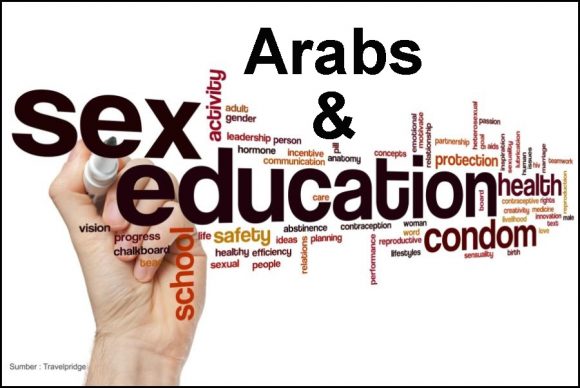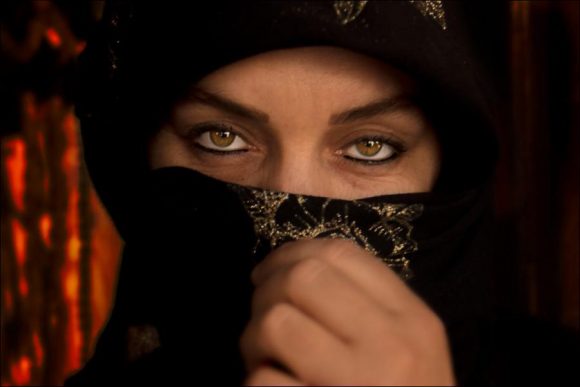Why is sexuality perceived as a bogeyman in the minds of Arab citizens and Muslims? Why is the Arab mind so cautious when it comes to ‘sexuality sanat in art, education and social life?
Sexuality is like a bogeyman in the Arab world of mind. This is a cultural, social, psychological and linguistic situation that the Arab citizen has experienced since the first years of the establishment of the family institution and society. Sexuality is a dead end for Arabs from birth to death. The elite and the people and the Arab society, while raising the issue of lik sexuality değerlendir, regard it as ‘the biggest shame, and speak in great secrecy and fear.
When sexuality is used synonymously with the concept of absolute us honor kan, blood is shed. Chopper battles are often fought in the name of homeland honor. Today, many Arab societies are still doing the murders they have committed to protect their honor. Honor means sexuality here. Because they do it in order to protect their dignity, they see it as nothing to keep it above the civil code.
The Arab people are sensitive about ‘love çünkü because they are thought to be directly related to sexuality. Therefore, there is a lack of natural emotional relations in Arab societies. Society can tolerate ‘love and love ken while tolerating‘ hatred and violence ken.
Co-education is prohibited in schools. Because, according to Arab logic, giving mixed education in schools is not directly related to natural human emotions among young people, but directly about sexuality.
Despite the development of familial, technological and economic Arab societies today, the relationship between Arabs and ‘sexuality medi has not changed much in terms of understanding, practice and education. Sexuality education continues to be a traditional education transferred from the elderly to adults, from adults to the next generation. Within the existing social complexity, apart from medical, psychological and moral new reality, there is education based on traditional methods and traditional language.
Yes, sexuality is perceived as a ‘bogeyman arasında among the elite and ordinary citizens of Arab society. On the other hand, the istatistik sexuality culture olan, which is linked to watching pornographic films about intense lust instinct, seems to be one of the most consumed by Arab citizens, according to statistics occasionally presented by the centers that monitor the watching of pornographic films and television programs around the world.
Because sexuality is a social monster, children and young people learn this by chance by larda trial and error larda where there is no specific strategy and there are no full awareness programs. This causes many cultural and moral adversities and illnesses.
The programs in the schools of both Arab and Moorish communities lack any civilized projects involving sexuality education for the new generation. Given the natural and human need of sexuality, the absence of this ‘culture of sexuality çocuklar puts children and adolescents at risk.
Unfortunately, at the political level, some Arab parliaments are engaged in legalizing the marriage of young people. However, they never consider offering ini sexual education için to young generations. When the Algerian Parliament proposed the idea of discussing the necessity and importance of sexual education and training in primary and secondary schools two years ago, some conservative voices that wanted society to remain in the dark rather than confront the present realities, opposed it, saying that it would be harmful in moral and religious terms. As usual, they tried to relate the issue of sexuality to wrong and sin, not to the necessities of human life, using an artificial religious discourse that lagged behind time, increasing the attacks on the advocates of inin sexuality education.
Shatibi, Hamid al-Gazzali and many other scholars of fiqh were much more brave than ours today.
Opponents of eğitim sexuality education m do not know that many of the classical intellectual fiqh scholars who have come to the fore in Arab-Islamic culture have raised the issue of sexuality without reservation and directly. Sermons and messages were very clear in social, religious and human nature. Our books, which are accepted as our religious and literary heritage, are full of these subjects.
En-Nefvazi, Es-Suyuti, Ibn Dawood, co-Shatibi, Hamid al-Ghazali and many other jurisprudence scholars, who have dealt with sexuality centuries ago, are far more courageous than our present state, and despite different time, social environment, technological communication and educational tools. I think they are facing this issue.
There is one thing I wonder and wonder… How does an Arab reader read these books about the traditional heritage of ken sexuality ken while attacking any scientific thought or serious initiative about the sexual education and training project for students in primary and high schools? How does he keep the Quran and hadith books in his libraries?
While we respect this courageous Arab heritage in addressing the issue of sexuality and sexual education, we are now forced to tackle the complex challenges we face while raising this issue. For this reason, sexuality education should be saved from the hands of clergy and jurists and transferred to psychologists, doctors and health workers. It is necessary to address this issue in a bold and serious way in order to save the physical, psychological and emotional health of the new generation from the mentality that sees our schools and cultural and artistic institutions as sexual bogey that scares young, old, men and women.
Arab regimes are still struggling with the creative role of sexuality in cinema and literature. However, these books sell well, and these films are more popular than others. This interest is not only related to the principle that there is a greater desire for everything that is prohibited. It also stems from the need for such a culture.
Strangely enough, in our contemporary and complex society, the only clergy who can speak freely about sexuality, regardless of their level of education and culture, are the clergy. We listen to many sermons and sermons that do not hesitate to elaborate on sexual issues. Some preachers even drew the image that ‘heaven yaratıl was created for sexual pleasure. There are, however, religious witchcraft programs, which they liken to uk ruky ’(reading and blowing), and many television channels dedicated to sexuality. These channels adopt religious rhetoric and no one objectes to them. On the other hand, if an academic or doctor writes a book in which he deals with sexuality, he is exposed to prohibition, insult and smear. This is a strange phenomenon in the dominant Arab mentality.
There is tremendous concern that sexuality is transformed from a natural, humanitarian situation to a means of enslavement. It is worried that the human body is aware of its value and dignity, and that it becomes a commodity that is bought and sold, rather than the expression of active freedom in human creation.
As there is no bold and positive education in the fields of cultural, artistic, civilization, medical and aesthetics related to the issue of ‘sexual education cinsel, sexuality, which is a natural and human need in the mental world of the Arab citizen, has become diseased and socially indulgent. This has become a ‘victim ı whose woman has been attacked by you or someone else on the street, at home or at work.
Visits: 184





